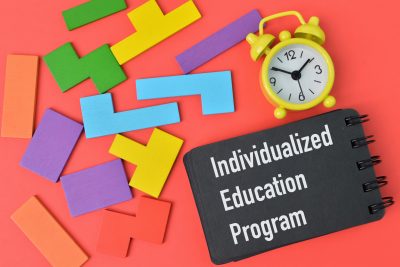Steps to Read, Understand, and Develop an Initial IEP
A Brief Overview A first-time IEP document is a lot to absorb. This article provides tips to help family members read through a draft IEP and prepare to participate on the IEP team that finalizes the Individualized Education Program before services begin. Remember, the school’s first version is a DRAFT, and family members of the Read More

